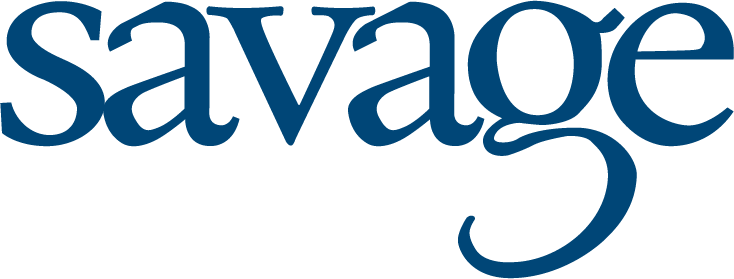COVID-19 Resources
Updated June 3, 2020
A message
At Savage and Associates, we’re continually monitoring the impact the novel coronavirus (COVID-19) is having on financial markets around the world. In the meantime, Savage advisors are working hard to provide our clients useful, accurate information and help ease the uncertainty many are feeling.
With that end in mind, we’ve compiled a list of resources for business leaders, individuals, and families who are seeking guidance during this uncertain time. We will update this webpage as new or updated information becomes available.
As always, we’re here to answer any questions you may have. Working together, we can remain focused on achieving your long-term financial objectives.
If you have any questions, please don’t hesitate to contact your Savage advisor.
J.R. Toland
President and Chief Executive Officer
Coronavirus Aid, Relief, and Economic Security (CARES) Act
The Coronavirus Aid, Relief and Economic Security Act became law on March 27, 2020. The legislation is a broad-based attempt to deal with the economic impact of the COVID-19 pandemic. Read an overview of the act.
CARES Act Summaries
Coronavirus Aid, Relief, and Economic Security Act (CARES Act)
On March 27, the President signed into law the Coronavirus Aid, Relief, and Economic Security Act (CARES Act). The CARES Act comes as a continued response to the Coronavirus 2019 (COVID-19) pandemic that is significantly impacting the United States. The Act is a $2.2 trillion economic package meant to stabilize individuals and employers as the nation continues to experience shelter-in-place advisories/orders, and hospitals report a surge of severely ill COVID-19 patients. The Act’s Paycheck Protection Program is retroactive to February 15, 2020, which is essential for businesses that have been experiencing financial hardships starting in February.
Overview of CARES Act
The CARES Act amends several laws, as well as appropriates funds to assist individuals, families, and businesses that are experiencing financial difficulties due to COVID-19. There are loans available to small companies for paycheck protection and credit forgiveness, and other assistance for individuals and businesses as it relates to unemployment insurance and tax relief. The Act supports the health care system by providing financial assistance for medical supplies and coverage. It also offers economic stabilization and assistance for severely distressed sectors (such as airlines), as well as additional COVID-19 relief funds, expanded telehealth and COVID-19 testing provisions, and emergency appropriations for COVID-19 health response and agency operations.
HSA and Telehealth Expansion
The CARES Act includes a new safe harbor under which high deductible health plans (HDHPs) can cover telehealth and other remote care before participants meet their deductibles (i.e., without cost-sharing). This temporary safe harbor applies for plan years beginning on or before December 31, 2021, unless extended. As a result, no-cost telehealth may be available for any reason—not just COVID-19 related issues–without disrupting HSA eligibility.
Prescription Drug Reimbursement under FSA/HRA/HSAs
The CARES Act allows health flexible spending accounts (FSAs), Health Reimbursement Arrangements (HRAs), and Health Savings Accounts (HSAs) to pay for or reimburse over-the-counter medication and menstrual products without a prescription. That is a permanent repeal of the ACA’s prohibition on reimbursements under such plans for over-the-counter medicines obtained without a prescription. This change is effective January 1, 2020. The IRS may issue further guidance regarding the timing of any necessary plan amendments.
COVID-19 Testing
Under the CARES Act, COVID-19 testing and related services must be offered at no cost-sharing, until the end of the public health emergency, as declared by Health and Human Services. That also means the health plans cannot require prior authorization or medical management for COVID-19 testing and services (such as an urgent care visit associated with COVID-19). This coverage requirement for COVID-19 testing applies to all health plans, including self-funded and grandfathered plans, and expires at the end of the public health emergency.
Any future COVID-19 vaccine must be provided cost-free, similar to other preventive care vaccines, by any non-grandfathered group health plan, under the ACA’s precautionary care rules. Also, the CARES Act requires group health plans and health insurers to cover any A or B-recommended qualifying coronavirus preventive service or CDC-recommended immunization, within 15 business days after the date of a recommendation. That is a much shorter timeframe than typically allowed for new recommended preventive care services to be added to a group health plan.
The CARES Act also clarifies how plans must pay for COVID-19 testing when performed by an out-of-network provider. Providers who offer COVID-19 testing must post a cash price on their website. Plans may pay out-of-network providers based on their posted cash rate for COVID-19 testing. Providers who fail to display the cost for COVID-19 testing face potential penalties of up to $300 per day. This provision is effective retroactively to March 18, 2020.im porttitor facilisis. Vivamus tincidunt lectus at risus pharetra ultrices. In tincidunt turpis at odio dapibus maximus.
Assistance for Businesses – Payroll Protection Program
The Act implements small business loans for employers that have fewer than 500 employees. An employer classified as hospitality and dining under the North American Industry Classification System (NAICS) with multiple locations may obtain loans on a location-specific basis so particular sites may qualify for a loan. The loans are 100 percent federally backed and available to pay for specific, operational costs. The interest rates for these loans cannot exceed 4 percent, and no subsidy recoupment or a prepayment penalty is permitted. Any small business administration disaster loan admitted after January 31, 2020, can be refinanced into the new loan program. The loan is capped at $10 million and requires a good-faith certification that:
- Loans are needed to continue operations during the emergency
- Funds go to retain workers and maintain payroll or pay for mortgage, lease, and utility payments
- There is no other application pending for the same purpose
- That from February 15, 2020, to December 31, 2020, the applicant has not received duplicate amounts
The facts and circumstances should be under close review when applying for and utilizing a small business loan. The Department of Treasury and Small Business Administration is likely to release additional guidance for these applications.
There is also assistance made for larger companies, which provides $500 billion in loans, loan guarantees, and investments for air carriers, cargo air carriers, businesses critical maintaining national security, and facilities that are established by the Federal Reserve to support lending. Loan forgiveness is not allowed for these loans. Again, employers should consult with counsel when availing themselves of these loans, and the Department of Treasury will likely release additional guidance.
Assistance for Individuals
The Act also addresses support for individuals and their families who qualify for unemployment benefits. States that adopt it add federal unemployment benefit of $600 per week to what they provide under state law, through July 31, 2020 (unless extended). Individuals unemployed or underemployed due to COVID-19 reasons may also be eligible for an additional 13 weeks of extended unemployment benefits, once state unemployment benefits end.
Additional funding is also available for states that waive the waiting period for unemployment benefits. States are authorized to enter into agreements with the federal government to initiate short-term compensation agreements to help subsidize payments to employees that have hours reduced due to COVID-19.
Individuals will also be eligible to receive a recovery rebate up to $1,200 ($2,400 for joint filers), including an additional $500 per child. That will phase out for taxpayers making $75,000 or more ($150,000 for joint filers, and $112,500 for heads of household), with the rebate completely phasing out for those earning more than $99,000 ($198,000 for joint filers). The refunds would be available even if a taxpayer had no income, as long as they file a return. Furthermore, 2018 tax filings will suffice if filers have not yet filed 2019 taxes. Similarly, there is a waiver of taxes for premature distributions of certain accounts, such as retirement and IRAs. Individuals wishing to exercise this waiver will need to confirm it is due to a COVID-19 financial hardship and urged to consult with a personal tax advisor.
Student Loan Relief
Under the CARES Act, employers may use an educational assistance program to reimburse employees for qualifying student loans up to $5,250 on a tax-free basis (state or local taxes may still apply). This provision applies to loan payments, including principal and interest, made between March 28, 2020, and December 31, 2020, unless extended. Educational assistance programs are subject to Section 127 of the Internal Revenue Code. They must be offered pursuant to a written plan document, be communicated to employees, and comply with specific nondiscrimination requirements.
Amendments to Families First Coronavirus Response Act (FFCRA) and Health Benefits
The CARES Act made several clarifications to the FFCRA. For purposes of the expanded FMLA provision, it considers employees rehired if they were laid off by their employer on or after March 1, 2020, had worked for the employer at least 30 days in the last 60 days before the layoff, and are rehired. That means that employees rehired after March 1 may be eligible for expanded FMLA immediately without having to re-satisfy the 30-day employment requirement under expanded FMLA. The CARES Act also clarifies that employers can receive an advance tax credit from the Treasury instead of waiting to be reimbursed.
The CARES Act also expands upon the types of COVID-19 testing that are required to be covered, which include in-vitro testing from any developer that has requested or intends to request emergency authorization from the FDA, or diagnostic tests authorized by a state.
Miscellaneous
The Act also provides additional funding for other federal departments to help continue to support industries during this time, as well as increase manufacturing and approval efforts for vaccines and other supplies. Likewise, some adjustments (generally technical corrections) were made to the 2017 Tax Cuts and Jobs Act.
What Employers Should Expect Next
We expect additional guidance at the federal level about applying for and receiving a business loan. Further information from the IRS regarding individual payments is likely to be released in the coming weeks. Employers may also refer to state unemployment websites for questions regarding unemployment, as many states have been updating consistently in response to the pandemic. Also, employers need to be aware of local and state emergency regulations that may affect how employers in specific industries, such as food services, operate during a public health emergency.

